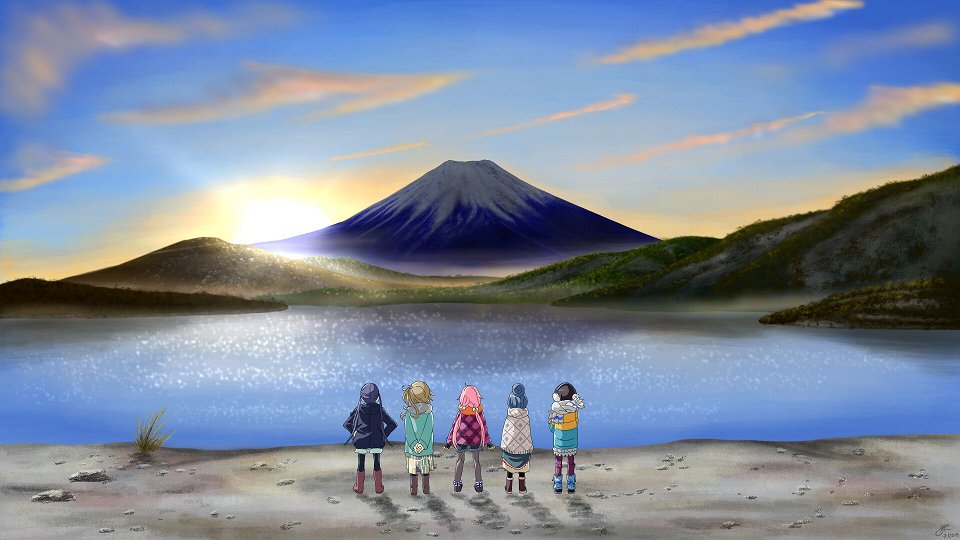A crítica mais recente (1 695)

Odekake Kozame - Season 1 (2023) (temporadas)
A delightful little mini-series perfect for the littlest viewers. If I were 3-5 years old, I'd likely be enamored with this charming shark's adventures, eagerly discovering something new in each episode and I'd probably sing along to that weird closing credits song. It turns out my inner child won't allow me to rate this little shark any lower than 6/10.

O Sangue de Zeus - Season 1 (2020) (temporadas)
As I used to love reading about ancient Greek myths and legends at school and repeatedly went back to read them again for years after, I did not find anything in this show very surprising, especially at the beginning. In fact, the whole basic narrative is nothing new. How about the main male protagonist, was he in any way original or interesting? Truth be told, not really... It is like a classic ancient fable, only much more fleshed out, gory and taken to crazier (and for some, probably much cooler) heights. Even so, did I find anything surprising and intriguing? Did I find something in Blood of Zeus that would make me miss it and crave the next season? I do not think so. I personally found that even the much talked about Castlevania, which is being raved about by everyone, was a bit more enjoyable than this because there was at least something surprising in every episode... The animation is fine, the soundtrack is great, although story-wise I think it is rather average. 5.5/10.

Ninja Kamui (2024) (série)
Ninja Kamui immediately piqued my interest with Song-hu Park at the helm, the same director behind the gripping first season of JJK. Known for his knack for choreographing exhilarating fight scenes, Park and his team deliver solid work here, seamlessly blending traditional animation with CGI. The fight sequences pack a punch, brimming with power, impact, and energy that kept me glued to the screen. The main character, brought to life by the stellar voice acting of Kenjirou Tsuda, drew me in with his compelling backstory and a motivation reminiscent of John Wick's. He exudes just the right amount of coolness to keep the entertainment flowing. However, my enthusiasm waned when it came to the story. While the beginning showed promise with its well-executed revenge narrative and intriguing ninja lore, it took a detour into the realm of mechanical suits and corporate villains, with the corporate world and a younger version of Steve Jobs as the primary antagonists. What began as a strong and straightforward plot gradually became convoluted, delving into themes that failed to hold my interest. It's disappointing to learn that the creators had to extend the episode count to 13 to accommodate their entire story, as I believe a tighter narrative with perhaps just 12 or even 8 episodes would have served the series better. Maintaining the pace and quality of the initial episodes without the unnecessary layers would have made for a more engaging experience. In the end, Ninja Kamui offers decent action and entertainment value, but its tendency to overstretch, overexplain, and rehash certain themes relegates it to a one-time watch for me. Unfortunately, it falls short of leaving a lasting impression. 5.5/10
O diário mais recente (109)
Anime Sezóna Jaro 2024
Jaro je tady a v rámci anime si připravilo spoustu pokračování, nějaké ty remaky a i pár úplných novinek.
Co z toho ale vůbec za něco stojí?
Tak já vám povím, co si o tom myslím:
Sleduji a líbí se:
My Hero Academia - Season 7
Demon Slayer - Hashira Training Arc
Sound! Euphonium - Season 3
Konosuba - Season 3
Mushoku Tensei: Jobless Reincarnation - Season 2 - Part 2
The Duke of Death and His Maid - Season 3
That Time I Got Reincarnated as a Slime - Season 3
Laid-Back Camp - Season 3
Spice and Wolf: Merchant Meets the Wise Wolf
Jellyfish Can't Swim in the Night
Sleduji:
Date a Live - Season 5
The Irregular at Magic High School - Season 3
The Misfit of Demon King Academy - Season 2 - Part 2
Studio Apartment, Good Lighting, Angel Included
I Was Reincarnated as the 7th Prince so I Can Take My Time Perfecting My Magical Ability
As a Reincarnated Aristocrat, I'll Use My Appraisal Skill to Rise in the World
Chillin' in Another World With Level 2 Super Cheat Powers
An Archdemon's Dilemma: How to Love Your Elf Bride
Grandpa and Grandma Turn Young Again
The Many Sides of Voice Actor Radio
The Raven Does Not Choose Its Master
Pokračuji ve sledování (z minulých sezón):
Tsukimichi -Moonlit Fantasy- Season 2
Již viděné (vyšlo dřív, nebo vše najednou):
The Grimm Variations - 17.4.2024 Netflix
Dropnuto:
Gods' Games We Play - ep.2 (3/10)
Rinkai! - ep.1
Vampire Dormitory - ep.2
Viral Hit - ep.4 (3,5/10)
T・P Bon - 2.5.2024 Netflix - ep.1
The Banished Former Hero Lives as He Pleases - ep.7 (3/10)
Oblivion Battery - ep.6 (3,5/10)
Nesleduji:
Urusei Yatsura (2022) - 2nd Season
Captain Tsubasa - Junior Youth-hen
Jantama - Kan!!
Black Butler - Public School Arc
Shadowverse Flame - (Arc-hen)
Nijiyon Animation - Season 2
Touken Ranbu Kai: Kyoden Moyuru Honnouji
The Perfect Prince Loves Me, the Side Character?!
Chibi Godzilla Raids Again - Season 2
SAINT SEIYA: Knights of the Zodiac - Battle for Sanctuary Part 2
YouTuNya - Season 2
Butt Detective - Season 7
Bude zařazeno:
Rising Impact - 22.6.2024 Netflix
Garouden: The Way of the Lone Wolf - 23.5.2024 Netflix

